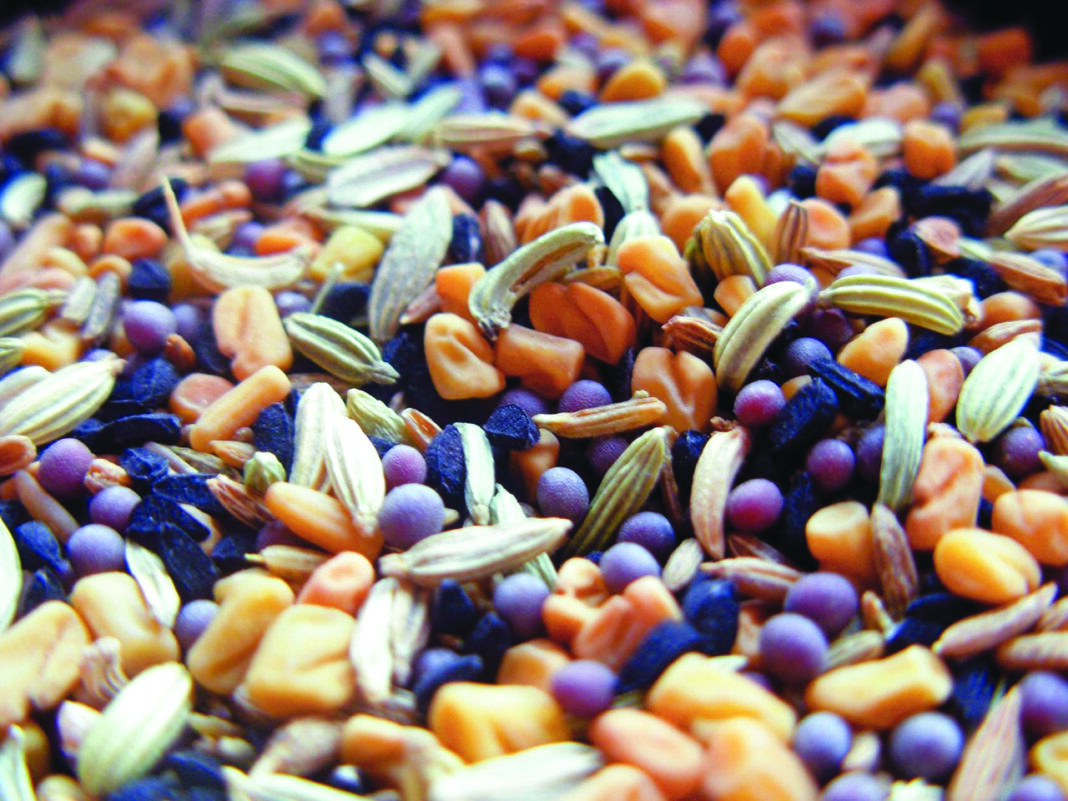By Annie Spiegelman, the Dirt Diva
What’s my favorite thing to do in my spare time? Admire my mammoth, multi-branching sunflowers, share their proud and prolific seeds and find ways to stick-it-to-the-Man. Yup. Don’t judge. Just follow. Your summer garden will be glad that you did. My latest defiance? Bringing back old-school seeds. In April of 2017, on International Seeds Day, the Center for Food Safety (CFS) launched a seed-sharing initiative called the Global Seed Network to help bring back some of the 75 percent of seed varieties that have disappeared since the beginning of the 20th century.
“The Center for Food Safety has been working to protect our food, farms and environment for 20 years and seeds are an intrinsic part of that,” says Erin Austin, CFS program and development associate. “CFS has been challenging the corporate control of our seed supply for many years and during this work, the need for an independent and open-sourced seed supply became clear. CFS leadership created the Global Seed Network to be a free, online platform accessible to everyone with the goal of connecting individuals across the country, and ultimately the world, to share their seeds and take back control of our food supply. Seed diversity is inseparable from food security, food sovereignty, adapting to a changing climate and preserving cultural and ancestral knowledge.”
Now, farmers, home gardeners, nonprofit organizations and the general public can connect with other seed savers globally. Here you can trade uncommon, non-GMO, disease-resistant, heirloom varieties that are tailored to your individual soil and climate conditions. It’s like a social network or the “Match.com” of seeds.
“Similar to Match.com, Global Seed Network users create a profile and can ‘match’ with other seed savers to share seeds,” Austin explains. “Users upload seeds they have to share and can then search for other users’ seeds. When you find seeds you like, you can ‘request’ the seed from another user and then the Global Seed Network connects the two users to coordinate over email.”
It’s simple and it’s free. No worries if you haven’t saved seeds before. You’ll be able to view in-depth seed profiles showing water requirements, and light and soil conditions, as well as the location where the plant was cultivated. It’s super fun, especially for us garden nerds. Currently the site has more than 700 members and thousands of visitors. To make the site a success, more folks will have to share and post their seeds. So, soon I will post my mixed sunflower seeds that originally came from the Petaluma Seed Bank.
Why join the seed swap? Most ‘food eaters’ (my brilliant friends and family included) are too busy or too worn down to stay updated on topics such as pollinator decline, the illegalization of seed saving and the deluge of toxic pesticides sprayed onto our local farms or injected into seeds created by global biotech corporations. Since the adoption of genetically engineered crops in the 1990s, the use of herbicides (weed killers) has increased. The same companies also sell the herbicides; funny how that works. These giant agrochemical corporations have actually prosecuted family farmers for alleged patent infringement. They want to own seeds. As far as I remember, seeds were a free, renewable resource from nature, not a privatized commodity. Just Google “Monsanto sues farmers over seeds” and you’ll lose your appetite.
“Beginning in the 1980s, large agrichemical corporations like Monsanto, DuPont, Syngenta, Dow and Bayer acquired scores of seed companies, buying up some of the highest-quality germplasm in the world,” Austin says. “Those five companies now own more than 60 percent of the world’s seed supply, and they’ve turned seeds into a corporate commodity. They are rapidly genetically engineering, patenting and controlling seeds, often to the detriment of farmers’ economic security, food safety and environmental sustainability. We hope the Global Seed Network will connect seed savers and help to create greater awareness about why saving seeds is so important and how seeds are integral to promoting a safe, regenerative food and farming system.”
For more information, visit the Global Seed Network website at globalseednetwork.org.






